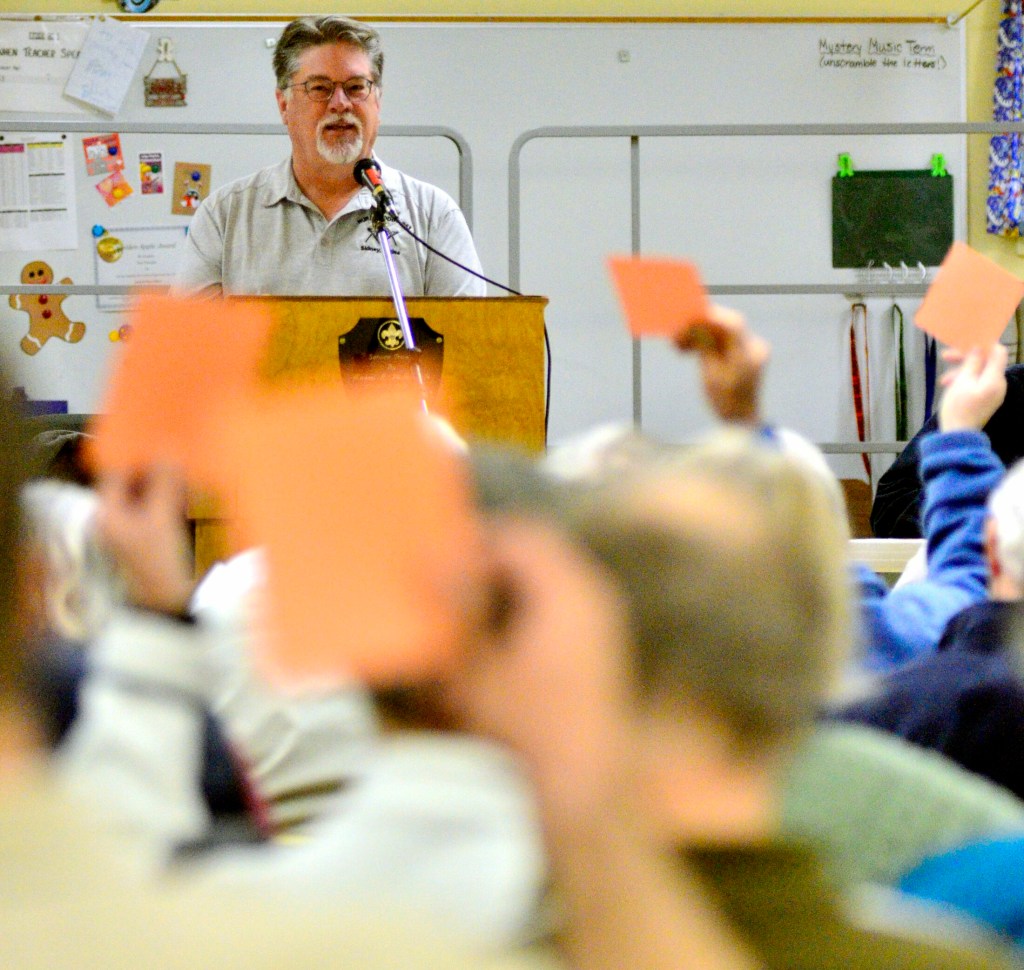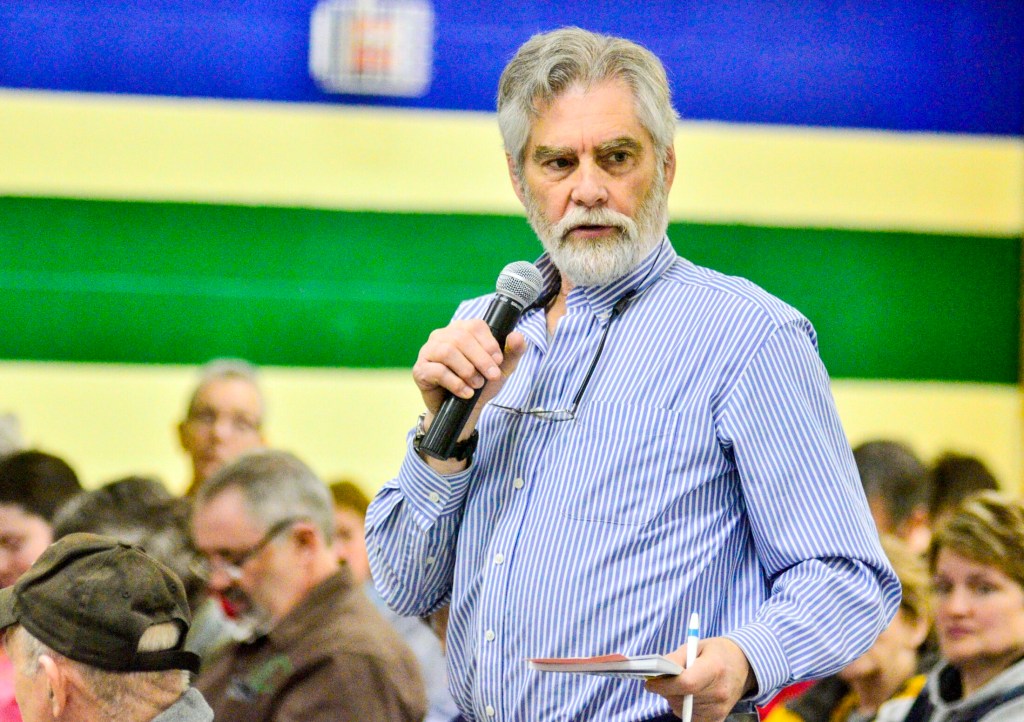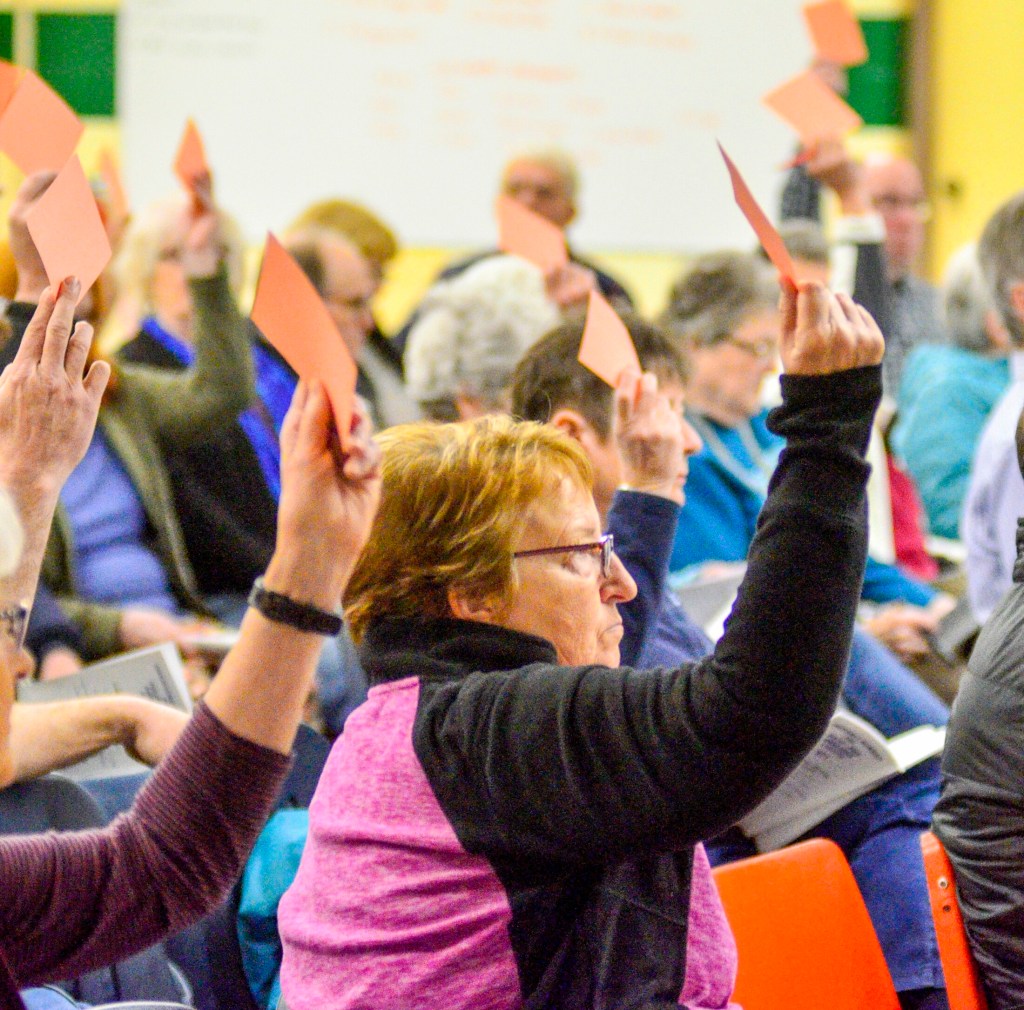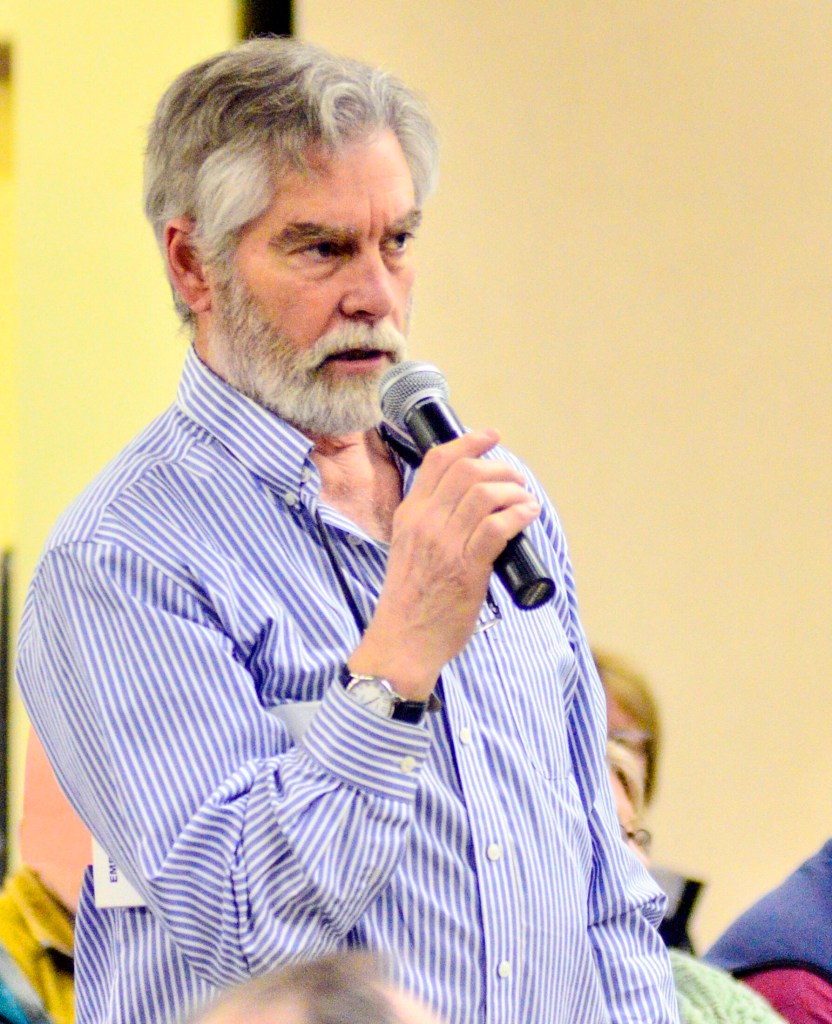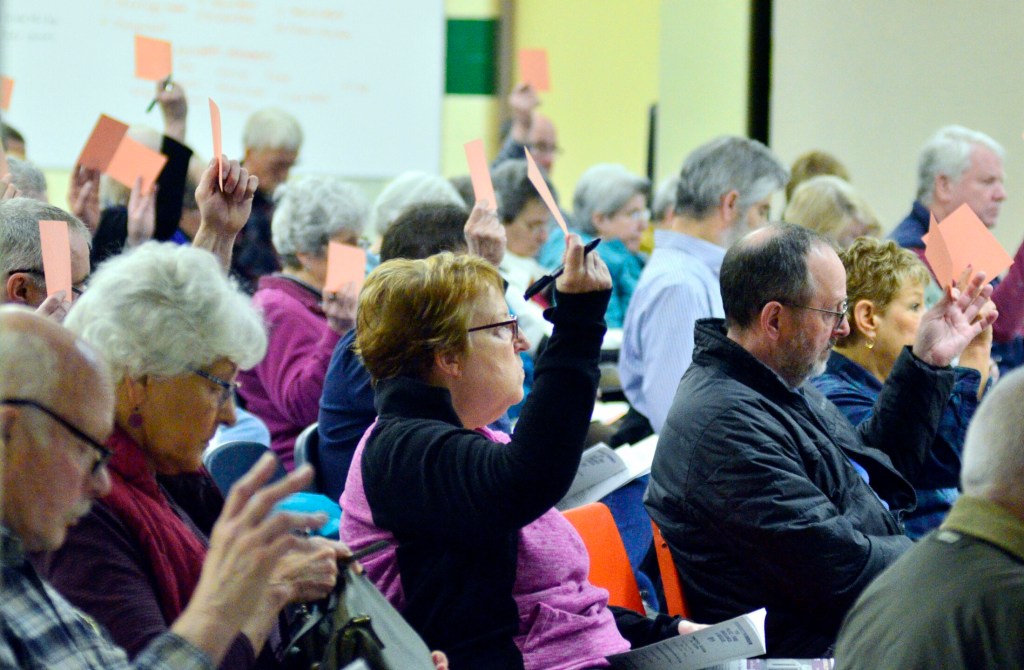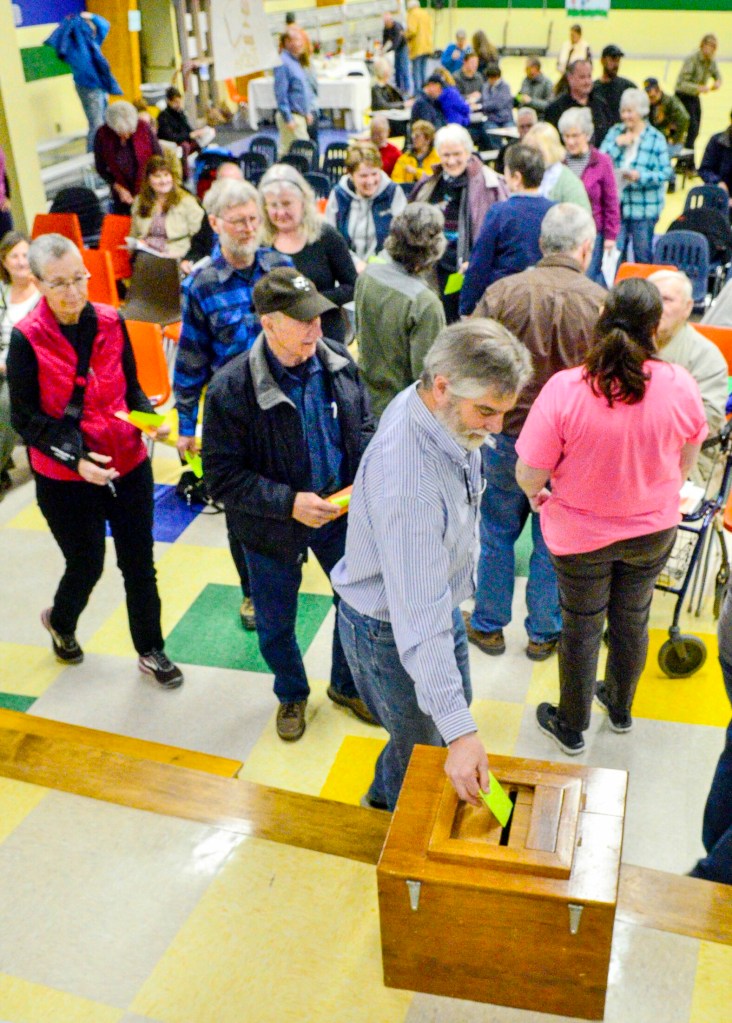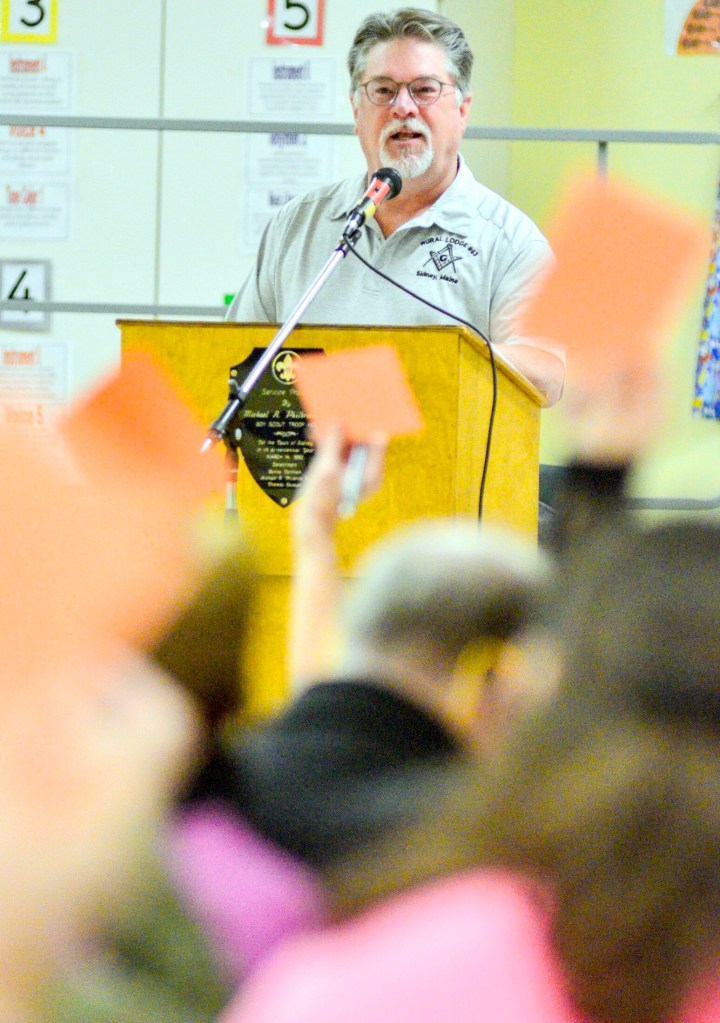SIDNEY — Residents voted Saturday to keep cluster housing developments out of town and increase municipal spending for the next fiscal year.
About 90 voters packed the cafeteria of James H. Bean School to offer their takes on 52 articles during their four-hour Town Meeting.
After about an hour of discussion, residents shot down Article 39, a proposed ordinance change that would have allowed real estate developers to have half- or quarter-acre lots in their developments instead of the town’s 1-acre minimum, in exchange for leaving half of the land for agriculture or recreational purposes. Planning Board member Louie Fontaine said the ordinance would preserve vital space for Sidney as populations grow in Waterville and Augusta and leach into town.
“One of the things people like about Sidney is it has a lot of space,” he said, adding that traditional 1-acre lot housing developments would not be replaced by clusters.
Supporters of the ordinance believed the clusters could be useful for older residents who couldn’t maintain a 1-acre property and prevent sprawl from eating up undeveloped land.
“(Sprawl is) something we don’t want nationally and locally,” resident Peter Beckerman said. “(The cluster housing ordinance) will be great for the environment in Sidney.”
Residents, ultimately, were largely unconvinced, voting 28 yes to 47 no votes, and killing the proposal. Generally, residents aired concerns about increased traffic on quiet residential roads and expressed a general distaste for more urban-leaning developments entering Sidney.
“I don’t think it’s good for the town,” resident Laura Parker said. “We’re already struggling to maintain what we have.”
Sidney Fire Chief Richard Jandreau said the town’s volunteer department is already stretched on response times, so cluster developments could lead to more houses catching fire before crews could arrive. Jandreau referenced March 19’s fire related to a murder-suicide in Gardiner, saying the house was fully in flames before crews arrived 20 minutes after the call came in.
Articles 40 and 41, which were contingent on Article 39, were not voted on.
Voters approved a $1,741,170 municipal spending plan for next fiscal year. Not all of that will be raised through property taxes; $1,284,287 will be raised through town revenue, $231,520 is expected to be raised by taxes and the remaining $228,363 will be funded through bonds, reserves and a block grant. Total municipal spending for the current fiscal year is $1,670,924, about 7.3 percent lower.
Selectman John Whitcomb said it was too early to tell what effect that would have on the town’s property tax rate because school budgets and other factors were not finalized.
Voters could have appropriated as much as $234,070 through property taxes, but voters turned down three charitable articles for a total of $3,046.50. Those donations would have benefited the Kennebec Land Trust, the Children’s Center of Augusta and the statewide Community Health and Counseling Service.
Residents also rejected, 44-45, an article that would have allowed the town to borrow $50,000 to buy a used loader. Whitcomb said the loader would be used in tandem with a loader the town already has and would have a larger bucket to help load plow trucks with salt and sand and get them back on the road faster.
Whitcomb said the town leased a loader for a month, which cost $3,000. Despite some skepticism that $50,000 was too little to buy a loader in good condition, Road Foreman Leon Burgess said he could find an adequate machine with a bevy of attachments.
“There are good used ones out there,” he said, adding that a new loader costs about $150,000. “I think we’re better off going used.”
Budget Committee member John George said the town’s luck with used machinery has been poor.
“Our history of buying used equipment has not been good,” he said, advocating for a lease agreement in the short term and looking to set money aside to buy a new machine.
Three selectman’s seats were filled in noncompetitive elections Friday. Incumbent Alisa Meggison-Keimel won re-election for a three-year term, Andrew McMullen was elected for two remaining years of a three-year term vacated by former Selectwoman Laura Parker, and James Pinkham will serve a two-year term.
Shawna Foye and William Cole were elected Saturday to three-year terms on the town’s Budget Committee and Bob Willette and William Cole will serve one-year terms as alternates.
Residents approved Article 52, which authorizes the Selectboard to determine the “cost effectiveness of installing solar panels on the Old Landfill property” to supply electricity to town buildings. If found to be cost-effective, the article gave the Selectboard authority to enter a multi-year agreement. Whitcomb said the Selectboard would enter the agreement only if there was no additional cost to the town.
Also approved was Article 53, acceptance of Richard Road, which includes part of the Pepin Estates Subdivision, as a public way.
Sam Shepherd — 621-5666
Twitter: @SamShepME
Send questions/comments to the editors.


